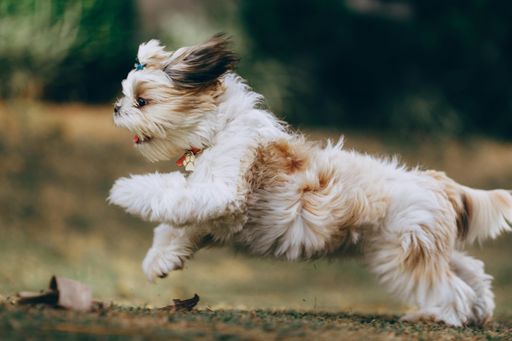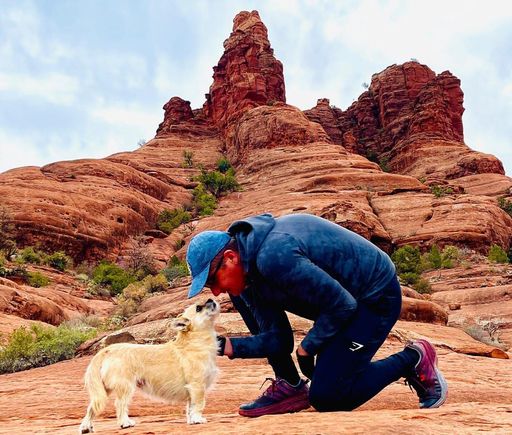For many people, leading a healthy lifestyle of diet and exercise is all about getting on a schedule and disciplining yourself. With some dedication, you’ll probably reach your goal. But what about your dog?
While a couple of pounds may not be that bad for you, they can affect your dog's health adversely. A vet will be able to tell you what your dog's optimal weight should be depending on its age and breed. If your dog's weight is up to 15% more than average, it is overweight. If your dog weighs heavier than that, it is obese.
Here’s how you can help your pooch be as healthy as can be, and keep yourself in check as well.
Feed Your Dog the Right Way
We associate food with love. It comes as no surprise that many pet owners share their food with their furry pals. If that is something you do as well, you need to stop immediately. Know that a dog's nutritional needs are very different from those of a human.
Moreover, some people ensure that their dogs have access to food 24/7 so that they can eat whenever they want to. This isn't the right thing to do because dogs will eat food even if they aren't hungry or if they are just plain bored.
Just as you need to stop snacking on that bag of potato chips to lose weight, you have to get your dog on a diet too. You will be following a meal plan and limiting your food intake. Do the same for your pooch. Feed it 3-4 small portions each day. If your dog comes to you begging for food or treats, don’t give in.
Make sure you accurately measure out the quantity of food your dog needs to eat. Instead of using your hands or a food scoop, use a measuring cup so you can keep a tab on the calories your dog intakes. Also, consider the number of calories your dog consumes in the form of treats.
If you’re dieting, though you will consume fewer calories, you won’t compromise on nutrition. Similarly, your dog needs to have a diet that is lower in calories but of a high nutritional value. Remember that commercial dog food may have a lot of filler that might not keep your pet full for longer and might not be nutritious either. Speak to the vet and ask what is best for your dog.
Get Your Dog Some Exercise
All dogs need to exercise regularly. The amount of exercise a dog needs depends on its age, breed, and health. Exercising not only helps dogs stay fit physically, but also enables their metabolic system to function properly, and keeps their minds engaged.
Lack of exercise causes dogs to become overweight and they can even develop destructive behavioral problems such as chewing on things, digging, and barking excessively. If your dog is overweight, you will have to devise an action plan to get it adequate exercise. If your pooch has always been a couch potato, you will have to start small. Again, the vet will be able to suggest the right exercises for your pooch.
Keep in mind that just letting your dog out in the backyard won’t work. A dog won’t exercise on its own. You will have to get active with your furry friend and burn calories with it. Take it for a walk, or go running or jogging with it.
Play a game of fetch if you will, but it will only help your mutt lose weight, not you. If you live in a flat, sprint up and down the stairs with your new exercise buddy for a great workout that will benefit both of you. Start with an exercise regime of 5-10 minutes and increase the time and pace gradually.
Make a schedule for your dog and stick to it. You might have problems sticking to your own exercise schedule but with a dog, it will never be difficult. Dogs are always willing to play high-energy games or go out for walks.
Monitor your dog’s behavior whenever you exercise as it won’t be able to tell you verbally if it is tired. Some dogs may even continue enthusiastically despite being exhausted. This could be dangerous so look out for signs of heavy panting and a drooping tail. Just as you need to stay hydrated during a workout, so does your pooch. Have enough water with you so you can offer it to your dog in case it overheats while exercising.
Conclusion
As pet parents, we want our dogs to be healthy. Now is the time to start taking responsibility for our dog’s health as we would our own.
Get into action now to help your pooch lead a healthy life!



















